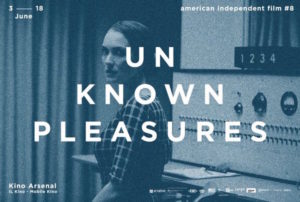Unknown Pleasures and Paul Thomas Anderson’s Junun in Berlin
Unknown Pleasures, this year’s eighth installment of the Berlin American Independent Film Festival, screened fifteen films, including a program of shorts, at four locations throughout the city from June 3 through June 18. The UP, as they call themselves, offers un-Hollywood movements of current American cinema (on days with multiple screenings one could live in this world a bit, believing America only produces this kind of serious, quirky, deeply curious filmic content). “Consistent in form and content, varied and adventurous, the films make for intelligent and engaging cinema that defies both Hollywood and mainstream independent film,” writes the UP on their festival website.

It is rare for art to be so breathtaking that it stands on its own without a supplemental narrative or structure needed to present it and magnify its meaning. The beginning parts of Junun, unbroken shots of the musicians rehearsing, felt slow to me. But, by focusing on their music – an astonishing mix of big band sound, string instruments including the kamaicha, flute, rhythm guitar, bass, keyboards, drum- and digital-programming with lyrics in Hebrew, Hindu, and Urdu – I was addicted from the get-go. To that point, as the film went on, Junun emerged as a film clearly not about narrative momentum but about reconceptualizing the moment, suggesting the quietest of moments can produce the most awesome of arts. The ability to be in solitude with oneself and make art in community can be an ancestral brainchild, given beautiful feeling when one of the musicians in the Rajasthan Express explains how he came to play his instrument: his father played it, as did his father’s father and his father’s father’s father.

Bravo to Anderson on his first documentary accomplishment with Junun, certainly, but encore applause, for this assiduous story belongs to the musicians. It is through them that sound becomes an experience I can only describe as synonymous with the very best of humanity-focused storytelling, or in other words: pure love.
Dina Paulson-McEwen
Latest posts by Dina Paulson-McEwen (see all)
- Interview with Hannes Holm, writer/director of A Man Called Ove - April 15, 2017
- Unknown Pleasures and Paul Thomas Anderson’s Junun in Berlin - July 3, 2016
- 10 Best Things About the 2016 Oscars - March 1, 2016


